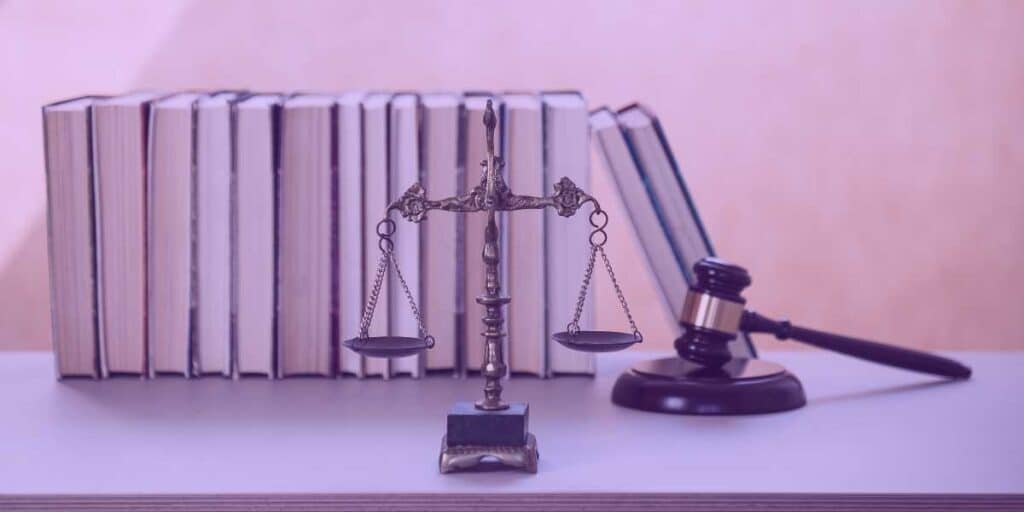The legal profession recently received a boost from the introduction of Law 15.109/2025, which eliminates the need for lawyers to pay upfront procedural costs when billing or collecting fees.
The update signifies progress in assessing the worth of a class, which helps to overcome financial obstacles in finding appropriate compensation.
This article will detail the modifications brought about by the new law and provide practical guidance on how to take advantage of the early payment of procedural expenses.
STJ rules that a trustee can participate in carrying out a sentence in a renewal action.
What is stated in Law 15.109/2025?
The new law has a provision in the Civil Procedure Code (Law No. 13.105/2015) to exempt lawyers from upfront payment of procedural costs when filing lawsuits to collect their fees.
Procedural expenses do not have to be paid in advance by the lawyer initiating the legal action, according to the authorized document. The debtor will be responsible for these costs at the conclusion of the process if they are found liable for the debt.
That signifies:
- The attorney can assess fees or collect charges without requiring upfront payment.
- The attorney can assess fees or collect charges without requiring an upfront payment.
- If the procedure is successful, the party in debt will need to cover the expenses.
- If the procedure is successful, the debtor will have to cover the expenses.
- If the lawyer loses, they will only have to cover the costs at the conclusion of the case.
- If the lawyer loses, they will only have to cover the costs after the case is concluded.
This modification lowers the financial obstacle for attorneys who frequently struggle to collect their own fees.
Explore the primary section of the standard:
Article 82 of Law No. 13,105, dated March 16, 2015 (Civil Procedure Code), takes effect along with the additional provision in § 3.
In collection proceedings for any type of case, including advocacy fees, lawyers do not have to pay procedural costs upfront. Instead, the defendant or party being executed must cover these costs at the end of the process if they are found at fault.
Lawyers now have more security to pursue fair compensation without having to cover procedural expenses upfront, which used to hinder the legal process.
STF expands the scope of the Maria da Penha Law to include same-sex couples and transgender women: grasp the ruling
What differences were brought about by Law 15.109/2025?
| Before Law 15.109/2025 | After Law 15.109/2025 | |
| Payment of costs | Previously, lawyers had to pay costs upfront to participate in legal actions. | Lawyers are no longer required to make early payments. |
| Accessibility of collection | Due to high costs, lawyers often did not pursue small fees through legal means. | It is now easier for lawyers to recover their fees through legal channels. |
| Financial impact | Lawyers, especially those in small firms, faced high costs. | The financial burden has been reduced in the pursuit of fee recovery. |
Lawyers are no longer required to pay upfront fees to pursue their fees in court, leading to a fairer dynamic between lawyers and clients who fail to pay.
Who can take advantage of this new regulation?
The exemption from paying costs upfront is applicable to all attorneys and legal practices filing lawsuits.
- Charging fees for breach of contract (when the client fails to pay for the legal services rendered).
- Charging fees for breach of contract (when the client fails to pay for the legal services rendered).
- Subcommittee fees, which are values determined by the court and not paid by the prevailing party in the case, are enforced.
- Subcommittee fees, which are set by the court and not paid by the winning party in the case, are enforced.
The law applies to both independent lawyers and law firms pursuing payment of outstanding fees.

How can we guarantee the enforcement of Law No. 15,109/2025?
Lawyers who want to start charging a fee without having to pay upfront costs are advised to:
- To adequately finance the request, you need to explicitly reference Law no. 15,109/2025 when submitting the petition, showing that the funds align with the fee exemption.
- To adequately finance the petition, you need to specifically reference Law no. 15,109/2025 when submitting the request, showing that the fees are covered by the exemption.
- To show that the client or winning party is not acceptable by providing contracts, court rulings, or documents verifying the debt.
- To show that the client or winning party is not allowed: by providing contracts, court rulings, or documents that confirm the debt.
- The lawyer can ask the debtor to prove their financial ability before any payment decision is made if there is a disagreement with the other party regarding cost exemption.
- The lawyer can ask the debtor to prove their financial situation before making a decision on payment if there is a disagreement with the other party regarding cost exemption.
- It is important to observe how judges and courts are interpreting and implementing the new legislation, as it may still lead to debates in the legal system.
- The new law may still spark discussions in the courts, so it is crucial to observe how judges and courts interpret and implement it.
Lawyers ensure the proper implementation of the new regulation and prevent unnecessary expenses in the collection procedure.
Changes in the legal application of Law No. 15,109/2025.
The endorsement of this guideline signifies a significant accomplishment for the advocacy group, advancing:
- Increased access to the legal process of fee collection by removing financial obstacles that impeded the retrieval of owed amounts.
- Improving access to the legal process of fee collection by removing financial obstacles that impeded the recovery of rightful amounts.
- Attorneys are protected against non-payment, allowing for more effective collection of unpaid fees.
- Ensuring that attorneys are protected from defaults, allowing for more efficient collection of unpaid fees.
- Recognizing the importance of the legal profession and the necessity for just compensation to enhance its value.
- Enhancing the value of the occupation, acknowledging the importance of legal services, and ensuring equitable compensation.
Law 15,109/2025 was implemented due to strong advocacy efforts by the legal profession to ensure that lawyers are not burdened with procedural expenses before receiving their fees, as stated by the National OAB.
Advocacy advances in fee implementation with new Law No 15.109/2025.
Law 15.109/2025’s approval is a major step forward for legal representation, enabling attorneys to recover their fees through the court without upfront procedural expenses.
This change ensures that lawyers dealing with fee collection challenges will have increased security and improved access to justice, without the financial strain they previously experienced.
It is crucial for lawyers to stay informed about new guidelines and rely on updated legislation to properly carry out collection actions.
With Legal AI, lawyers can enhance the preparation of legal documents such as petitions, appeals, contracts, and other procedural items to expedite fee collection.
At Legal AI, you can quickly obtain a customized document tailored to your case.
Discover the advantages of utilizing Legal AI.
- Produce your process parts more quickly and accurately to ensure clear writing with fewer errors.
- Produces your parts efficiently and accurately, saving time and minimizing errors in writing.
- Legal security involves having documents that are in accordance with constantly updated regulations and legal precedents.
- Legal security involves possessing documents that adhere to constantly updated regulations and legal precedents.
- Our artificial intelligence takes into account the details of the case and adapts the writing to the specific requirements, guaranteeing a strong argument.
- Our artificial intelligence adapts the writing based on the specifics of the request to provide a well-supported argument.
- Focus more on strategy by automating administrative tasks and dedicating time to essential activities like negotiations and decision-making.
- Emphasize strategy by automating administrative tasks and focusing on essential activities like negotiations and decision-making.
The top artificial intelligence for attorneys can be tested for free.


